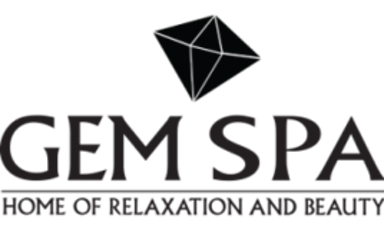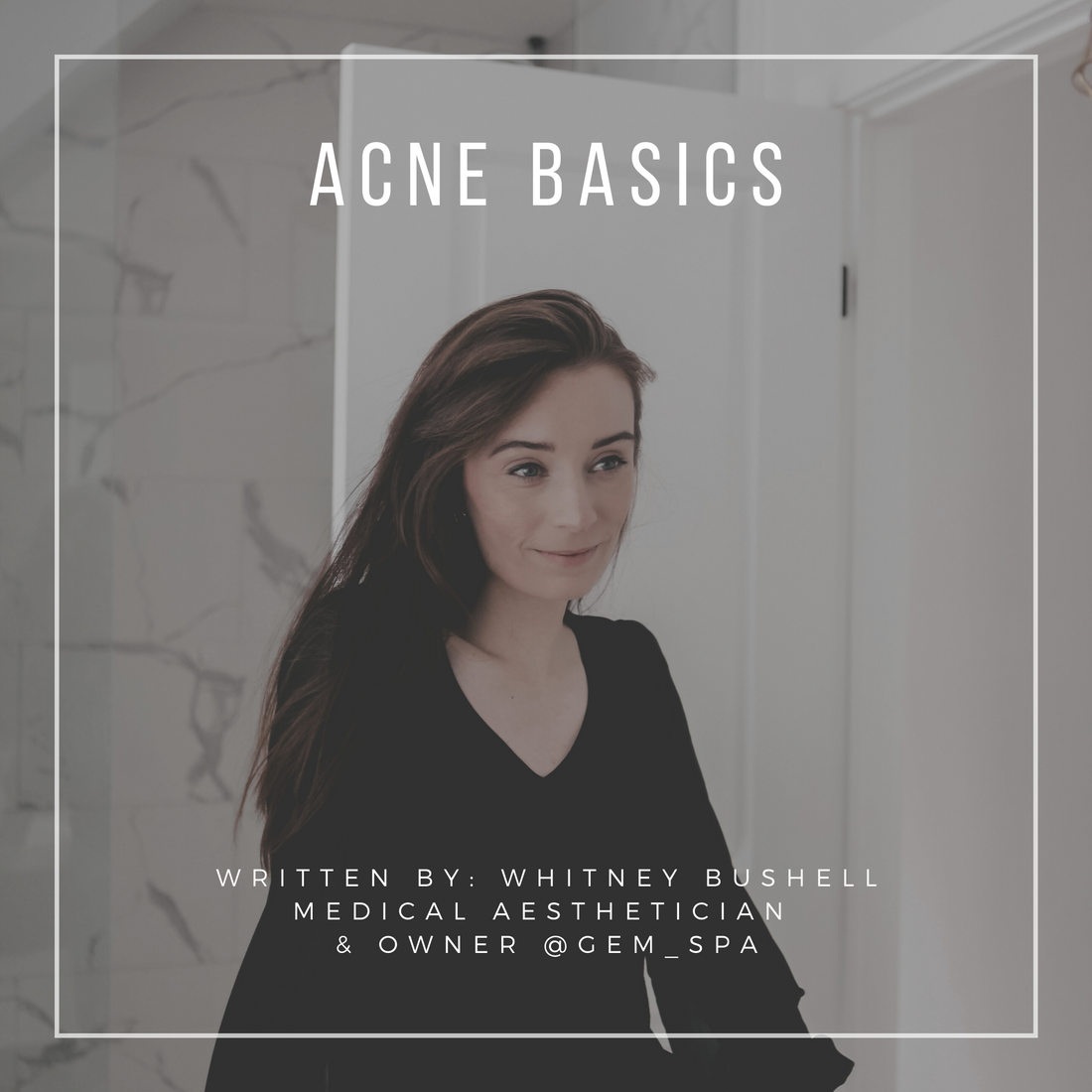
Acne. What a word! For most people, the feelings associated with this word are entirely negative. We often have the mentality that acne is something we only struggle with in high school and sadly this is not the case. The increase in adult acne I have seen throughout my career as an aesthetician, including my own battle, has been dramatic. I want to start off with sharing the basic skincare steps that you should be taking to get started on getting your breakouts under control. Many of you have already placed these habitual routines in your life (and I am VERY proud of you) and for those of you who have not, it's never too late!
Before we get started I want to give you the most important tip of all....please do not extract/pop your blemishes yourself! Especially when they are red and inflamed. This will only lead to making the situation worse and cause potential scarring. Ok, now that we have that out of the way let's begin your basic skincare education!
SKINCARE 101:
1. Cleanse
Cleansing with a cleansing product (not just water) that is appropriate for your skin type is the most important first step. The cleanser removes excess sebum and environmental buildup from the day. I highly recommend cleansing 2 x/day (morning and night). Choosing the correct cleanser can be a very difficult task. The default, if you are suffering from acne, is generally to lean towards a harsh, drying gel that contains salicylic acid or benzoyl peroxide. These chemicals are not always the wrong choice, however they are most effective for a true oily skin type. Although you may feel like you have an oily skin type, there is a great chance you have wrongly diagnosed. If you are over the age of 25 there is a strong possibility that you have a dry skin type and your breakouts are hormonal or stress related. In this case you should lean towards a milk or oil based cleanser that provides a moisture barrier for your skin and will not strip your skin.
2. Exfoliate
Exfoliating with acne is necessary but you need to be careful what type of exfoliating you choose. With congestive acne a manual exfoliation is fantastic. But whatever you do....DO NOT USE ST. IVES!!! (oops did I say that?) A product such as Dr. Spiller Jojoba Peeling Cream works really well with this skin type, as it is gentle and effective at loosening the dead skin cells that are blocking your pores from oxygen. If you have active acne with pustules or cysts you want to stay away from manual exfoliation and use an enzyme or chemical exfoliation process such as salicylic acid, retinol or AHA. Using these forms of exfoliation removes the dead skin cells while not causing a disruption of the inflamed, infected acne.
3. Toner/Astringent
Toner acts as a ph neutralizing agent. After cleansing, your acid mantel has been stripped and the toner will restore the ph to neutral, preparing your skin for the moisture content you will be adding on step 4. I recommend using toner or hydrating mist rather than astringent for almost every skin type. Astringents are drying, as they contain higher levels of alcohol and should be reserved for truly oily skin types. Again, many of you may feel that you have an oily skin type, when in actuality this skin type is fairly rare.
4. Serum/Oil
Serums or oils when applied to the skin offer a unique form of hydration and benefit you because they are packed with active ingredients. Oils in particular come very close to the molecular makeup of the oils our skin produces, aiding in the balancing of sebum production. So if you are having breakouts due to dry, congested skin, oils are a wonderful way to slow down the over production of sebaceous glands and reduce breakouts. Many of the serums or oils contain ingredients that are anti-inflammatory and healing, to help with the cell turnover/renewal that heals your existing breakouts.
5. Moisturizer
I'm not sure about you, but I know I was under the impression when I had bad acne that I should under no circumstances put moisturizer on my face. I was too scared that it would make my skin worse and I would look so oily you could fry food on my face. If only I had known that moisture is exactly what my skin needed! Placing a cream onto your skin (especially in winter months) truly helps balance your sebum production, reduces healing time, locks in active ingredients and acts as a barrier from harsh environmental impacts. Feeding your skin moisture can be the best choice you ever make, but making sure you have chosen the correct moisturizer is integral to the results.
As with all things in life, when you want results you must be dedicated to the routine. My advice to you, is to start with the basics and begin creating a realistic routine. The most important thing to remember is that no one notices your acne the way you do (not that I EVER believed that when people would tell me that), but it is absolutely the truth!

